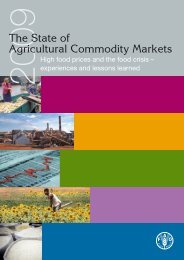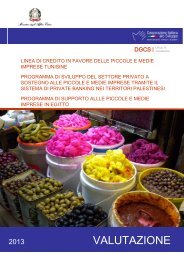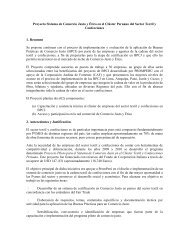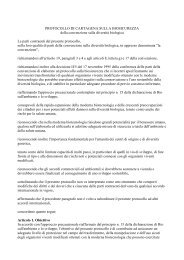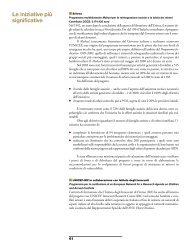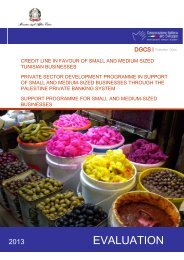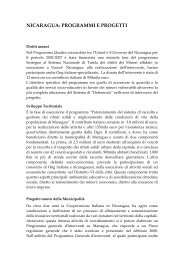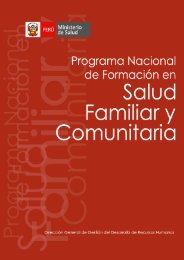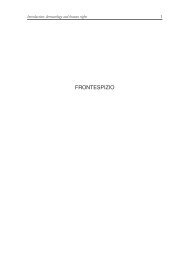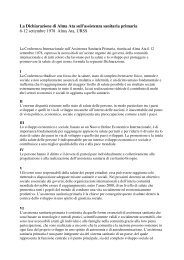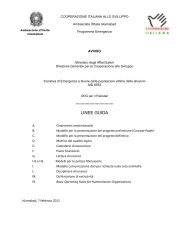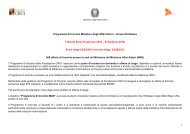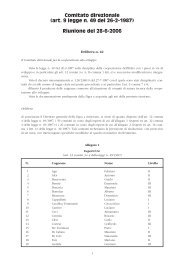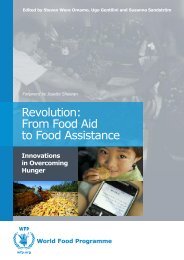here - Cooperazione Italiana allo Sviluppo
here - Cooperazione Italiana allo Sviluppo
here - Cooperazione Italiana allo Sviluppo
Create successful ePaper yourself
Turn your PDF publications into a flip-book with our unique Google optimized e-Paper software.
and who have identified the most significant judicial cases on which theanalysis has been undertaken.2. Investigative instruments: outlines, questionnaires,disclosure cardsThe research was undertaken through in-depth interviews following a predefinedoutline of the different subjects mentioned above and, as far as the casefiles are concerned, through the analysis of the documents of the proceedings.Starting with the outline and the questionnaires predisposed by UNICRI,having been used in similar research undertaken in other contexts, the researchgroup worked at drawing up two outlines for interviews (for the NGO and thevictims), a more detailed questionnaire (for institutional officials, LawEnforcement officials) and a disclosure card of data to be found in the judicialdocumentation.The adaptation of the investigative instruments available was necessary:on the one hand, because of the peculiarity of the subject of the research andthe fact it had already been studied in other investigations, such as toconstitute a sufficiently solid fount of knowledge within the framework;on the other hand, due to the limited number of subjects to contact and ofcases to analyse foreseen, which brought about a choice to work more than inthe direction of systematic collection of data and information, in the directionof a thorough investigation of some revealing questions and above all of theanalysis of the tendency evolved that it is possible to discern.Given the project context in which the research work is to be found, inpreparing the instruments, particular attention was given to the possibility ofcollection - by all the selected interlocutors - of evaluations, suggestions andproposals regarding possible preventative action, support and the fight which canbe developed either in Nigeria or in Italy.The criteria which guided the choice of order in the contents and in the form ofthe instruments available can be recapitulated as follows:a) Interviews of privileged official witnesses of NGOs active in this area: theoutline of open questions aimed in particular at rebuilding the essential elements ofthe in<strong>here</strong>nt situation:the phenomenon in general;the changes over the course of the last years;the perceived tendencies which may emerge;the consequences of policies in Italy (Art. 18 d.lgs 286/1998, repatriation,etc.);the potential and limitations of intervention in support of the victims;the most efficacious and realistic instruments to prevent and contrast thephenomenon (in Nigeria, in Italy).



